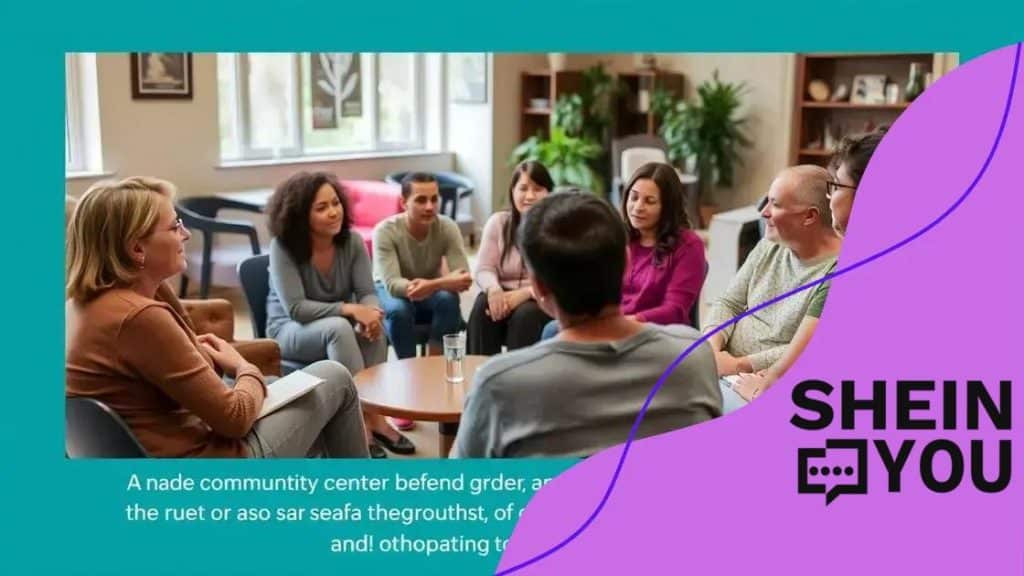Benefits for survivors of domestic violence under federal laws

Anúncios
Benefits for survivors of domestic violence under federal laws include access to financial aid, legal support, counseling services, and resources that enhance community safety and empower individuals to reclaim their lives.
Benefits for survivors of domestic violence under federal laws play a crucial role in providing support and protection. Have you ever wondered how these laws can empower individuals and reshape lives? Let’s dive into this topic and explore the available resources.
Anúncios
Understanding federal laws for domestic violence
Understanding federal laws for domestic violence is essential for survivors. These laws provide a framework for protection and support, ensuring that individuals in abusive situations can find safe avenues for assistance. By knowing their rights and available resources, survivors can regain control over their lives.
Key federal laws addressing domestic violence
Several important federal laws aim to combat domestic violence. These laws help protect survivors and hold offenders accountable. Some notable acts include:
- The Violence Against Women Act (VAWA) – This act provides funding for services and programs designed to assist survivors.
- The Family Violence Prevention and Services Act (FVPSA) – This act ensures access to emergency shelter and support services.
- The Victims of Crime Act (VOCA) – This act offers resources for victims of crime, including domestic violence.
Each of these acts plays a crucial role in supporting survivors. They are pivotal in offering the necessary assistance and protection to those in need.
Anúncios
How federal laws help survivors
Federal laws not only provide specific protections but also help change societal views on domestic violence. By enforcing legal consequences for abusers, these laws send a clear message that violence is unacceptable. Additionally, they establish grants and funding for programs that educate and empower victims.
Through federal support, local communities can develop resources tailored to their specific needs, which can include counseling, legal help, and safe housing options. Such initiatives help to create a safer environment for survivors to rebuild their lives.
Accessing resources
Survivors can take various steps to access the benefits provided by federal laws. Here are a few key ways:
- Contact local domestic violence hotlines for immediate support.
- Reach out to community organizations that offer resources.
- Seek legal assistance to understand your rights under federal laws.
By utilizing these resources, survivors can better navigate their options and make informed decisions about their path forward.
Key benefits available to survivors

There are numerous key benefits available to survivors of domestic violence under federal laws. These resources can help individuals reclaim their lives and provide them with the necessary support after experiencing trauma. Awareness of these benefits is crucial for those in need.
Financial assistance programs
One major benefit includes financial assistance programs that help survivors with immediate needs. These programs are designed to cover:
- Housing costs – Assisting with rent or mortgage payments to ensure safe living conditions.
- Medical expenses – Providing funds for medical care or mental health services.
- Emergency funds – Offering immediate cash assistance for food or transportation.
By tapping into these financial resources, survivors can stabilize their situations and focus on healing.
Counseling and support services
In addition to financial aid, survivors can access counseling and support services. These services are vital for emotional recovery. They include:
- Individual therapy to address past trauma.
- Group therapy for shared experiences and support.
- Hotlines for immediate assistance and guidance.
These services can help survivors rebuild their confidence and foster resilience. They create safe spaces for survivors to express their feelings and start their healing journeys.
Legal protections and advocacy
Legal protections are also a critical benefit for survivors. Federal laws offer:
- Restraining orders to keep abusers away.
- Legal aid resources for those who can’t afford representation.
- Workplace protections that allow survivors to take time off for safety reasons without losing their job.
Access to these legal benefits empowers survivors to pursue justice while ensuring their safety. By knowing their rights, individuals can make informed decisions about their situations.
How to access federal assistance programs
Accessing federal assistance programs can significantly help survivors of domestic violence. These programs offer vital resources for safety, healing, and rebuilding lives. Knowing how to access these benefits makes a big difference in a survivor’s journey.
Finding the right resources
To start, survivors should know where to look for assistance. Here are several key resources:
- National Domestic Violence Hotline – This hotline offers information about available services and can connect survivors with local resources.
- USA.gov – A government website that provides an easy way to find federal assistance programs specific to different needs.
- Local shelters – Many shelters can provide direct assistance and information on accessing federal benefits.
Utilizing these resources can help survivors identify the programs that best fit their needs.
Steps to apply for assistance
Once survivors have identified the appropriate programs, the next step is to apply. The application process may vary by program, but here are some general steps to follow:
- Gather necessary documents – Collect identification, proof of residency, and any records that support the need for assistance.
- Complete the application – Fill out the required application forms accurately. Many programs offer online applications for convenience.
- Follow up – After submitting an application, it’s crucial to follow up to check the status and provide any additional information if needed.
Staying organized throughout the process can help ensure that survivors secure the assistance they deserve without unnecessary delays.
Utilizing community resources
In addition to federal assistance programs, local community organizations also provide important support. Engaging with these resources can enhance the support network. Many organizations offer:
- Workshops that inform survivors about federal assistance.
- Legal help to navigate application processes.
- Peer support groups for emotional aid.
Community engagement helps survivors feel less isolated and more empowered to take advantage of available assistance.
Resources for legal support and advocacy

Accessing resources for legal support and advocacy is essential for survivors of domestic violence. These resources provide critical assistance in navigating the legal system and ensuring that survivors know their rights.
Types of legal support resources
Several types of resources are available to help survivors with their legal needs. Understanding these can empower individuals to seek the help they deserve:
- Legal aid organizations – These groups offer free or low-cost legal representation for survivors, helping them with issues like custody, divorce, and protection orders.
- Pro bono legal services – Many lawyers volunteer their time to help survivors, offering essential legal guidance without charging fees.
- Domestic violence advocacy programs – These programs often have legal advocates who can assist survivors in filling out paperwork and understanding court processes.
Please remember that individuals can find local organizations by searching online or contacting the National Domestic Violence Hotline for recommendations.
Finding legal resources
To effectively find legal resources, survivors should use online tools. Websites like LawHelp.org can help locate local legal aid organizations and provide information specific to each state. Additionally, community centers often host legal workshops, connecting survivors with local attorneys.
Online forums and support groups can also serve as platforms where survivors share their experiences and recommend helpful resources. These spaces foster connections that can lead to valuable information about advocacy and legal rights.
Understanding legal rights
It is vital for survivors to understand their legal rights. Some key rights include:
- The right to file for a protection order to keep abusers away.
- The right to privacy in legal proceedings.
- The right to receive support services during court cases.
Being informed about these rights can help survivors feel more secure when navigating the legal system. Knowledge can build confidence and ensure they advocate for themselves effectively.
Impact of federal laws on community safety
The impact of federal laws on community safety is profound and far-reaching. These laws set the groundwork for protecting survivors of domestic violence and promoting safety within communities. By addressing issues of violence and providing legal support, these laws create a safer environment for everyone.
Strengthening community resources
Federal laws often lead to increased funding and resources for community programs. This funding typically supports:
- Local shelters that provide safe havens for those fleeing abusive situations.
- Crime prevention initiatives that engage communities in creating safer environments.
- Education programs aimed at raising awareness about domestic violence and resources available.
These enhanced resources empower communities to take proactive steps towards reducing violence.
Promoting collaboration between organizations
Federal laws often encourage partnerships between governmental and non-governmental organizations. This collaboration can lead to:
- Stronger advocacy networks that work collectively to support survivors.
- Shared training programs that educate law enforcement and community members on handling domestic violence cases effectively.
- Integrated service models that offer a holistic approach to assisting survivors.
Such collaboration creates a unified front against domestic violence, enhancing the support system for affected individuals.
Changing societal attitudes
Federal laws also contribute to a shift in societal attitudes towards domestic violence. By recognizing and addressing the issue legally, these laws help:
- Reduce stigma around seeking help for survivors.
- Encourage bystanders to report abuse and support survivors more actively.
- Normalize conversations about preventing domestic violence within communities.
As attitudes change, community safety improves, leading to a greater willingness to fight against abuse.
FAQ – Frequently Asked Questions about Federal Laws for Survivors of Domestic Violence
What types of federal assistance are available to survivors of domestic violence?
Survivors can access financial aid, housing support, counseling services, and legal assistance through various federal programs.
How do federal laws improve community safety regarding domestic violence?
Federal laws enhance community safety by providing funding for local programs, promoting awareness, and supporting initiatives that address domestic violence.
Where can I find legal support for domestic violence issues?
Legal support can be found through local legal aid organizations, pro bono services, and domestic violence advocacy programs.
Why is it important to understand my rights as a survivor?
Knowing your rights helps empower you to seek the necessary support and protections under federal laws, ensuring your safety and well-being.





